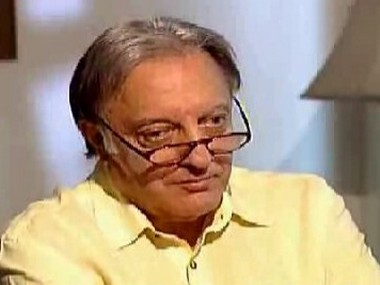By Ajit Wadekar To most who knew him, Mansur Ali Khan Pataudi was a reserved man. But if you got into his inner circle, you would discover the prankster – the man who loved to play practical jokes and who could be quite witty at times. There was this time when he took the team to Bhopal to play a charity match and after the game, he decided to take us out for a hunt. That was a princely thing to do and we were all game for it. But while we were in the jungle, we were suddenly surrounded by dacoits. We were scared and when one of the dacoits fired in the air, Vijay Manjrekar, G Vishwanath and Erapalli Prasanna burst into tears. The dacoits demanded two lakhs to free us and that’s when Manjrekar, who was crying profusely, said: “I am just a poor cricketer and I work in Kohinoor Mills, I don’t have that kind of money.” [caption id=“attachment_90155” align=“alignleft” width=“380” caption=“He was a reserved man, yes, but there was an aura about that almost instantly made you respect him.Reuters”]  [/caption] And then pointing at Pataudi, he said: “He got us here, why don’t you ask him for the money?” A few hours, later a bag arrived and we were all set free. We were relieved to be alive but when the same dacoits served us tea in the morning, we knew that we had been royally played. None of us could stop laughing. That was the kind of guy Tiger was. He was a reserved man, yes, but there was an aura about that almost instantly made you respect him. For me, the allegiance came naturally. He supported my candidature and got me into the Indian team when all the selectors except Madhav Mantri were against it. And he did it on instinct. I continued to play under him, till I took over. We all had full faith in him and if he asked us to do something, we would do it without a second thought. He would lead by example and he wouldn’t ask us to do something that he couldn’t do either. That was his greatness in our eyes. We had an unwritten bonding – he would see to it that I played my share of matches. But there was this one season – in 1970, when I didn’t too well in domestic cricket. So while we were practising in the nets, I took him aside and told him: “Tiger, you see that I’m in the team.” I don’t know whether he had an inkling of what was about to about to transpire, but he turned around and told me: “You also ensure that I am in the team.” The next thing we knew that I was named captain of the Indian team for the tours of West Indies and England. I was completely surprised and immediately called Tiger to ask if he wanted to be part of the team and he said, “Absolutely, no problem.” But then he called me next morning and said something about politics and how he didn’t want to be part of the team. The historic victories we achieved in West Indies and England (India’s first wins in both those countries) could not have been achieved without Tiger. He placed special emphasis on fielding and that helped us take crucial catches and win matches. When he fielded in the covers, I still remember the way his throws used to whiz into the wicketkeepers gloves. In those days, it was quite the sight. As a batsman, his numbers weren’t great. But the one Test that remains with me till date was against Australia at Melbourne in 1967-68. I remember someone later said it was played with one innings and one eye and it couldn’t have been put better. He had pulled his hamstring, the pitch was damp and nasty but the way he hammered (Garth) McKenzie simply took one’s breath away. We had all watched in awe. If he had use of both his eyes, the world would have indeed been his oyster. As a captain, he stood out. Not just because of his aggressive tactics but also because he was there for so long. Remember those were the days when captains used to change in every match. He stayed at the helm and left his mark. Perhaps, the biggest thing he did for Indian cricket was rid it of the complex against the white skin. He had learnt all his cricket in England and to him, they were just people. And I think his attitude manifested itself in the way the other youngsters treated the Englishmen as equals thereafter. I was in Delhi yesterday and even went to the hospital to pay him my respects but the visiting hours were over. All I can say is that he left an indelible mark on all those who met him and he will be sorely missed. (As told to Ashish Magotra)
He had learnt all his cricket in England and to him, they were just people. The Indian youngster just did what he did thereafter.
Advertisement
End of Article
Written by FP Archives
see more


)

)
)
)
)
)
)
)
)



